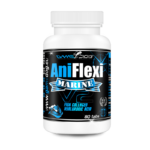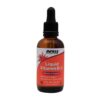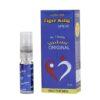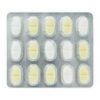-
Now Liquid Vitamin D3 Drops 400 IU Drops For Strong Bones 60ml ₦34,648.00 QTY: 1
-
AMRITVEDA No.1 QUALITY ORIGINAL TIGER KING SPRAY (5ml) ₦221.00 QTY: 1
-
GLIMY M1 TABLETS 15`S ₦3,645.50 QTY: 1
Customer matched zone "Lagos Delivery Options"
Sort by:
92881–92896 of 395536 Results
-
-
Demelan Even Skin Tone Cream? Demelan Cream 15g is specially formulated with a powerful blend of glycolic acid, alpha arbutin, and dipalmitate of kojic acid to help even out skin tone during hyperpigmentation. Dermatologically tested. How to use: Please see enclosed information leaflet. Ingredients:?Each gram contains Glycolic acid 100mg. Alpha-arbutin 50mg Kojic dipalmitate 20mg. Preservatives: Methylparaben 0.18% w/w. Propylparaben 0.02% w/wSku: 1718415494-5653
Demelan Even Skin Tone Cream 15g
₦30,795.00 -
SaleSku: 1737097963-5522
DEMELAN LITE 50ML LOTION
₦15,000.00Original price was: ₦15,000.00.₦12,360.00Current price is: ₦12,360.00.₦15,000.00Original price was: ₦15,000.00.₦12,360.00Current price is: ₦12,360.00. Add to basket Quick View -
SaleSku: 1737097958-5521
DEMELAN LITE LOTION 50ML
₦16,250.00Original price was: ₦16,250.00.₦13,406.25Current price is: ₦13,406.25.₦16,250.00Original price was: ₦16,250.00.₦13,406.25Current price is: ₦13,406.25. Add to basket Quick View -
-
SaleDemelon 1.5 mgSymptomatic treatment of mild to moderately severe Alzheimer's dementia.?Symptomatic treatment of mild to moderately severe dementia in patients with Idiopathic Parkinson's disease.Theropeutic ClassDrugs for DementiaPharmacologyRivastigmine is a carbamate derivative that is structurally related to physostigmine, but not to donepezil and tacrine. The precise mechanism of rivastigmine has not been fully determined, but it is suggested that rivastigmine binds reversibly with and inactivates chlolinesterase (eg. acetylcholinesterase, butyrylcholinesterase), preventing the hydrolysis of acetycholine, and thus leading to an increased concentration of acetylcholine at cholinergic synapses. The anticholinesterase activity of rivastigmine is relatively specific for brain acetylcholinesterase and butyrylcholinesterase compared with those in peripheral tissues.Dosage of Demelon 1.5 mgRivastigmine capsule- Initial dose: Rivastigmine 1.5 mg twice a day. Dose titration: The starting dose is Rivastigmine 1.5 mg twice a?day. If this dose is well tolerated after a minimum of two weeks of treatment, the dose?may be increased to Rivastigmine 3 mg twice a day. Subsequent?increases to 4.5 mg and then 6 mg twice a day should also be based on good tolerability?of the current dose and may be considered after a minimum of two weeks of treatment at?that dose level. Maintenance dose: The effective dose is 3 mg to 6 mg twice a day; to achieve maximum therapeutic benefit patients should be maintained on their highest well tolerated dose. The recommended maximum?daily dose is 6 mg twice a day. Maintenance treatment can be?continued for as long as a therapeutic benefit for the patient exists.? Re-initiation of therapy: If treatment is interrupted for more than several days, it should be re-initiated at 1.5 mg twice daily. Dose titration should then be carried out as described above. Rivastigmine transdermal patch: Apply patch on intact skin for a 24-hour period; replace with a new patch every 24 hours. Initial Dose: Initiate treatment with 4.6 mg/24 hours Rivastigmine transdermal patch. Dose Titration: After a minimum of 4 weeks, if tolerated, increase dose to 9.5 mg/24 hours, which is the minimum effective dose. Following a minimum additional 4 weeks, may increase dosage to maximum dosage of 13.3 mg/24 hours. Mild to Moderate Alzheimer's Disease and Parkinson?s Disease Dementia: Rivastigmine transdermal patch 9.5 mg/24 hours or 13.3 mg/24 hours once daily. Severe Alzheimer?s Disease: Rivastigmine transdermal patch 13.3 mg/24 hours once daily. For treatment interruption longer than 3 days, retitrate dosage starting at 4.6 mg per 24 hours. Administration of Demelon 1.5 mgRivastigmine should be administered twice a day, with morning and?evening meals.Interaction of Demelon 1.5 mgAs a cholinesterase inhibitor, Rivastigmine may?exaggerate the effects of succinylcholine-type muscle relaxants during anaesthesia.?Caution is recommended when selecting anaesthetic agents. Possible dose adjustments?or temporarily stopping treatment can be considered if needed. In view of its?pharmacodynamic effects, rivastigmine should not be given concomitantly with other?cholinomimetic substances and might interfere with the activity of anticholinergic?medicinal products. No pharmacokinetic interaction was observed between rivastigmine?and digoxin, warfarin, diazepam or fluoxetine in studies in healthy volunteers. The increase in prothrombin time induced by warfarin is not affected by administration of?rivastigmine. No untoward effects on cardiac conduction were observed following?concomitant administration of digoxin and Rivastigmine.ContraindicationsThe use of this medicinal product is contraindicated in patients with hypersensitivity to the active substance or other carbamate derivatives.Side Effects of Demelon 1.5 mgThe most commonly reported adverse reactions are gastrointestinal,?including nausea (38%) and vomiting (23%), especially during titration. Female patients?in clinical studies were found to be more susceptible than male patients to?gastrointestinal adverse reactions and weight loss.Pregnancy & LactationFor Rivastigmine no clinical data are available.?Rivastigmine should not be used during pregnancy unless clearly necessary. In animals,?rivastigmine is excreted into milk. It is not known if rivastigmine is excreted into human?milk. Therefore, women on rivastigmine should not breast-feed.Precautions & WarningsPatients with sick sinus syndrome or conduction defects, resp diseases. Cholinergic stimulation may increase gastric acid secretion. May exacerbate urinary obstruction and seizures. Pregnancy. Renal impairment, mild to moderate hepatic impairment. Monitor body wt. Asthma or obstructive pulmonary disease. May worsen extrapyramidal symptoms. Lactation.Overdose Effects of Demelon 1.5 mgMost cases of accidental overdose have not been associated with any clinical signs or symptoms and almost all of the patients concerned continued rivastigmine treatment. Where symptoms have occurred, they have included nausea, vomiting and diarrhoea, hypertension or hallucinations. Due to the known vagotonic effect of cholinesterase inhibitors on heart rate, bradycardia and/or syncope may also occur. Ingestion of 46 mg occurred in one case; following conservative management the patient fully recovered within 24 hours. As rivastigmine has a plasma half-life of about 1 hour and a duration of acetylcholinesterase inhibition of about 9 hours, it is recommended that in cases of asymptomatic overdose no further dose of rivastigmine should be administered for the next 24 hours. In overdose accompanied by severe nausea and vomiting, the use of antiemetics should be considered. Symptomatic treatment for other adverse reactions should be given as necessary. In massive overdose, atropine can be used. An initial dose of 0.03 mg/kg intravenous atropine sulphate is recommended, with subsequent doses based on clinical response. Use of scopolamine as an antidote is not recommended.Storage ConditionsStore in a cool and dry place, protected from light.Drug ClassesDrugs for DementiaMode Of ActionRivastigmine is a carbamate derivative that is structurally related to physostigmine, but not to donepezil and tacrine. The precise mechanism of rivastigmine has not been fully determined, but it is suggested that rivastigmine binds reversibly with and inactivates chlolinesterase (eg. acetylcholinesterase, butyrylcholinesterase), preventing the hydrolysis of acetycholine, and thus leading to an increased concentration of acetylcholine at cholinergic synapses. The anticholinesterase activity of rivastigmine is relatively specific for brain acetylcholinesterase and butyrylcholinesterase compared with those in peripheral tissues.PregnancyFor Rivastigmine no clinical data are available.?Rivastigmine should not be used during pregnancy unless clearly necessary. In animals,?rivastigmine is excreted into milk. It is not known if rivastigmine is excreted into human?milk. Therefore, women on rivastigmine should not breast-feed.Pediatric UsesRenal and hepatic impairment: Due to increased exposure in moderate renal and mild to?moderate hepatic impairment, dosing recommendations to titrate according to individual tolerability should be closely followedUse in children: Rivastigmine is not recommended for use in children.Sku: 1736104959-3710
Demelon1.5 mg
₦8,855.00Original price was: ₦8,855.00.₦7,969.50Current price is: ₦7,969.50.₦8,855.00Original price was: ₦8,855.00.₦7,969.50Current price is: ₦7,969.50. Add to basket Quick View -
SaleDementa-D 14 mg+10 mgMemantine and donepezil hydrochlorides extended-release capsules are a combination of memantine hydrochloride, an NMDA receptor antagonist, and donepezil hydrochloride, an acetylcholinesterase inhibitor, indicated for the treatment of moderate to severe dementia of the Alzheimer?s type in patients stabilized on 10 mg of donepezil hydrochloride once daily.Composition7/10 Capsule: Each Extended Release Capsule contains Memantine Hydrochloride (as Extended Release Pellets) 7 mg & Donepezil Hydrochloride (as Immediate Release Pellets) 10 mg.14/10 Capsule: Each Extended Release Capsule contains Memantine Hydrochloride (as Extended Release Pellets) 14 mg & Donepezil Hydrochloride (as Immediate Release Pellets) 10 mg.21/10 Capsule: Each Extended Release Capsule contains Memantine Hydrochloride (as Extended Release Pellets) 21 mg & Donepezil Hydrochloride (as Immediate Release Pellets) 10 mg.28/10 Capsule: Each Extended Release Capsule contains Memantine Hydrochloride (as Extended Release Pellets) 28 mg & Donepezil Hydrochloride (as Immediate Release Pellets) 10 mg.Dosage of Dementa-D 14 mg+10 mgFor patients on donepezil hydrochloride 10 mg only, the recommended starting dose of memantine and donepezil hydrochlorides extended-release capsules is 7 mg/10 mg, taken once daily in the evening. The dose should be increased in 7 mg increments to the recommended maintenance dose of 28 mg/10 mg. The minimum recommended interval between dose increases is one week.Patients on memantine hydrochloride (10 mg twice daily or 28 mg extended-release once daily) and donepezil hydrochloride 10 mg once daily can be switched to memantine and donepezil hydrochlorides extended- release capsules 28 mg/10 mg, taken once daily in the evening.Memantine and donepezil hydrochlorides extended- release capsules can be taken with or without food, whole or sprinkled on applesauce; do not divide, chew, or crush. Severe renal impairment: the recommended maintenance dose for memantine and donepezil hydrochlorides extended-release capsules is 14 mg/10 mg once daily in the evening.Interaction of Dementa-D 14 mg+10 mgCombined use with NMDA antagonists: use with caution. Memantine and donepezil hydrochlorides extended-release may interfere with anticholinergic medications. Concomitant administration of succinylcholine, similar neuromuscular blocking agents, or cholinergic agonists may lead to synergistic effect.ContraindicationsMemantine and donepezil hydrochlorides extended-release capsules are contraindicated in patients with known hypersensitivity to memantine hydrochloride, donepezil hydrochloride, piperidine derivatives, or to any excipients used in the formulation.Side Effects of Dementa-D 14 mg+10 mgThe most common adverse reactions, occurring at a frequency of at least 5% and greater than placebo with memantine hydrochloride extended-release 28 mg/day, were headache, diarrhea, and dizziness. The most common adverse reactions occurring at a frequency of at least 5% in patients receiving donepezil and at twice or more the placebo rate, include diarrhea, anorexia, vomiting, nausea, and ecchymosis.Precautions & Warnings Memantine and donepezil hydrochlorides extended-release is likely to exaggerate succinylcholine-type muscle relaxation during anesthesia. Memantine and donepezil hydrochlorides extended-release may have vagotonic effects on the sinoatrial and atrioventricular nodes manifesting as bradycardia or heart block. Monitor patients for symptoms of active or occult gastrointestinal bleeding, especially those at increased risk for developing ulcers. Memantine and donepezil hydrochlorides extended-release can cause diarrhea, nausea, and vomiting. Memantine and donepezil hydrochlorides extended-release may cause bladder outflow obstructions. Conditions that raise urine pH may decrease the urinary elimination of memantine, resulting in increased plasma levels of memantine. Storage ConditionsKeep below 30?C temperature, away from light & moisture. Keep out of the reach of children.Drug ClassesAnti-Alzheimer drugsMode Of ActionMemantine and donepezil hydrochlorides extended-release capsules contain two approved medications: memantine hydrochloride extended-release and donepezil hydrochloride. Each of those medications is postulated to have a different mechanism in Alzheimer?s disease.Memantine: Persistent activation of central nervous system NMDA receptors by the excitatory amino acid glutamate has been hypothesized to contribute to the symptomatology of Alzheimer?s disease. Memantine is postulated to exert its therapeutic effect through its action as a low to moderate affinity uncompetitive (open channel) NMDA receptor antagonist which binds preferentially to the NMDA receptor-operated cation channels. There is no evidence that memantine prevents or slows neurodegeneration in patients with Alzheimer?s disease.Donepezil: Current theories on the pathogenesis of the cognitive signs and symptoms of Alzheimer?s disease attribute some of them to a deficiency of cholinergic neurotransmission. Donepezil is postulated to exert its therapeutic effect by enhancing cholinergic function. This is accomplished by increasing the concentration of acetylcholine in the central nervous system through reversible inhibition of its hydrolysis by acetylcholinesterase. There is no evidence that donepezil prevents or slows neurodegeneration in patients with Alzheimer?s disease.PregnancyThere are no adequate data on the developmental risk associated with the use of memantine and donepezil hydrochlorides extended-release capsules or its active ingredients (memantine hydrochloride and donepezil hydrochloride) in pregnant women. There are no data on the presence of memantine or donepezil in human milk, the effects on the breastfed infant, or the effects of memantine and donepezil hydrochlorides extended-release capsules or its metabolites on milk production.Pediatric UsesPediatric Use: Safety and effectiveness of memantine and donepezil hydrochlorides extended-release in pediatric patients have not been established.Renal Impairment: No dosage adjustment is needed in patients with mild or moderate renal impairment.Hepatic Impairment: No dosage adjustment is needed in patients with mild or moderate hepatic impairment. Memantine and donepezil hydrochlorides extended-release has not been studied in patients with severe hepatic impairmentSku: 1736100243-2326
Dementa-D14 mg+10 mg
₦13,750.00Original price was: ₦13,750.00.₦12,375.00Current price is: ₦12,375.00.₦13,750.00Original price was: ₦13,750.00.₦12,375.00Current price is: ₦12,375.00. Add to basket Quick View -
SaleDementa 5 mgMemantine is indicated for the treatment of all froms of dementia of the Alzheimer's type. Memantine may also be indicated in other types of dementia.Theropeutic ClassAnti - Alzheimer drugs, Drugs for DementiaPharmacologyPersistent activation of N-methyl-D-aspartate (NMDA) receptors in Central Nervous System by the excitatory amino acid glutamate has been hypothesized to contribute to the symptomatology of Alzheimer's disease. Memantine is postulated to exert its therapeutic effect through its action as a low to moderate affinity as an uncompetitive (open-channel) NMDA receptor antagonist which binds preferentially to the NMDA receptor-operated cation channels.Dosage & Administration of Dementa 5 mgThe recommended maintenance dose of Memantine?for adults and older patients is 20 mg every day. In order to lower the risk of side effects, the dose should be achieved by upward titration with 5 mg per week over 3 weeks, achieving the maintenance dose of 20 mg/day from the start of week 4 according to the following dosage guideline:Week 1 (Everyday):?Morning- 5 mg (1 tablet),?Night- No doseWeek 2 (Everyday):?Morning- 5 mg (1 tablet),?Night- 5 mg (1 tablet)Week 3 (Everyday):?Morning- 10 mg (2 tablets),?Night- 5 mg (1 tablet)Week 4 and onwards (Everyday):?Morning- 10 mg (2 tablets),?Night- 10 mg (2 tablets)Missed Dose: If any dose is missed, just wait and take the next dose at the usual time. Do not double the dose to compensate for the missed dose.Dosage of Dementa 5 mgThe recommended maintenance dose of Memantine?for adults and older patients is 20 mg every day. In order to lower the risk of side effects, the dose should be achieved by upward titration with 5 mg per week over 3 weeks, achieving the maintenance dose of 20 mg/day from the start of week 4 according to the following dosage guideline:Week 1 (Everyday):?Morning- 5 mg (1 tablet),?Night- No doseWeek 2 (Everyday):?Morning- 5 mg (1 tablet),?Night- 5 mg (1 tablet)Week 3 (Everyday):?Morning- 10 mg (2 tablets),?Night- 5 mg (1 tablet)Week 4 and onwards (Everyday):?Morning- 10 mg (2 tablets),?Night- 10 mg (2 tablets)Missed Dose: If any dose is missed, just wait and take the next dose at the usual time. Do not double the dose to compensate for the missed dose.In case renal impairment: In patients with moderate renal impairment (creatinine clearance 30-49 ml/min) daily dose should be 10 mg (1 ml solution, equivalent to two downward strokes). If tolerated well after at least 7 days of treatment, the dose could be increased up to 20 mg/day according to standard titration scheme. In patients with severe renal impairment (creatinine clearance 5-29 ml/min) daily dose should be 10 mg (1 ml solution, equivalent to two downward strokes) per day.In case of hepatic impairment: In patients with mild or moderate hepatic impaired function, no dosage adjustment is needed. Administration of memantine is not recommended in patients with severe hepatic impairment.Children under 18 years: Memantine is not recommended for use in children below 18 years due to lack of data on safety and efficacy.Interaction of Dementa 5 mgDue to the pharmacological effects and mechanism of action of memantine suggests that the effects of L-dopa, dopaminergic agonists, and anticholinergics may be enhanced by concomitant treatment with NMDA-antagonists such as memantine. The effects of barbiturates and neuroleptics may be reduced. Concomitant administration of mematine with the antispasmodic agents, dantrolene or baclofen, can modify their effects and a dosage adjustment may be necessary. Memantine should not be used with amantadine, ketamine, dextromethorphan, phenytoin, cimetidine, ranitidine, procainamide, quinidine, quinidine, quinine & nicotine.ContraindicationsDementa 5 mg is contraindicated in patients with known hypersensitivity to Dementa 5 mg or to any excipients used in the formulation.Side Effects of Dementa 5 mgMost frequent side effects (frequency of 2% or less) include hallucination, confusion, dizziness, headache and fatigue. Occasional side effects include anxiety, hypertonus (heightened muscle tension), vomiting, bladder infections and increased sexual drive. If there is a history of epileptic seizures, there is a slight chance that Memantine may increase the probability of an attack.Pregnancy & LactationPregnancy Category B. Yet there are no adequate and well controlled studies of Memantine in pregnant women. Memantine should be used during pregnancy only if the potential benefit justifies the potential risk to the fetus. It is not known whether Memantine is excreted in human breast milk. Because many drugs are excreted in human milk, caution should be exercised when Memantine is administered to a nursing mother.Precautions & WarningsCaregivers should be instructed in the recommended administration (twice per day for doses above 5 mg) and dose escalation (minimum interval of one week between dose increases). If the patients suffer from kidney dysfunction, the kidney function should be monitored at regular basis.Seizures: Memantine has not been systematically evaluated in patients with a seizure disorder. One clinical trial shows that seizures occurred in 0.2% of patients treated with Memantine and 0.5% of patients treated with placebo.Carcinogenesis, Mutagenesis and Impairment of Fertility: Study shows that no risk of carcinogenesis, mutagenesis and impairment of fertility are caused after Memantine use.Operating Vehicles or Machinery: Taking Memantine may alter the reaction time significantly; therefore safe driving and safe operation of machinery may no longer be possible.Overdose Effects of Dementa 5 mgSymptoms: Agitation, asthenia, bradycardia, vomiting, dizziness, vertigo, ECG changes, increased BP, visual hallucinations, confusion, lethargy, restlessness, slowed movement, somnolence, stupor, unsteady gait, weakness, loss of consciousness, psychosis, coma. Management: Symptomatic and supportive treatment. May increase elimination by urinary acidification.Storage ConditionsStore in a cool and dry place, protected from light. Keep this medication out of reach of children.Use In Special PopulationsIn case of renal impairment: A target dose of 5 mg BID is recommended in patients with severe renal impairment (creatinine clearance: 5-29 ml/min).In case of hepatic impairment: No dosage adjustment is needed in patients with mild or moderate hepatic impairment. Memantine should be administered with caution to patients with severe hepatic impairment.Mode Of ActionPersistent activation of N-methyl-D-aspartate (NMDA) receptors in Central Nervous System by the excitatory amino acid glutamate has been hypothesized to contribute to the symptomatology of Alzheimer's disease. Memantine is postulated to exert its therapeutic effect through its action as a low to moderate affinity as an uncompetitive (open-channel) NMDA receptor antagonist which binds preferentially to the NMDA receptor-operated cation channels.Memantine is well absorbed after oral administration and has linear pharmacokinetics over the therapeutic dose range. It is excreted predominantly unchanged in the urine and has a terminal elimination half-life of about 60-80 hours. Following oral administration, Memantine is highly absorbed with peak concentrtions reached in about 3-7 hours. Food has no effect on the absorption of Memantine. The mean volume of distribution of Memantine is 9-11 L/kg and the plasma protein binding is low (45%). emantine undergoes partial hepatic metabolism. About 48% of administered drug is excreted unchanged in urine; the remainder is converted primarily to three polar metabolites which possess minimal NMDA receptor antagonistic activity: the N-glucuronide conjugate, 6-hydroxy Memantine and 1-nitroso-deaminated Memantine. A total of 74% of the administered dose is excreted as the sum of the parent drug and the N-glucuronide conjugate. The hepatic microsomal CYP-450 enzyme system does not play a significant role in the metabolism of Memantine.PregnancyPregnancy Category B. Yet there are no adequate and well controlled studies of Memantine in pregnant women. Memantine should be used during pregnancy only if the potential benefit justifies the potential risk to the fetus. It is not known whether Memantine is excreted in human breast milk. Because many drugs are excreted in human milk, caution should be exercised when Memantine is administered to a nursing mother.Sku: 1736107655-4514
Dementa5 mg
₦5,500.00Original price was: ₦5,500.00.₦4,950.00Current price is: ₦4,950.00.₦5,500.00Original price was: ₦5,500.00.₦4,950.00Current price is: ₦4,950.00. Add to basket Quick View -
-
-
Demerol Ampul Drugs 0 The AllschoolabsStars rating goes beyond a simple average of reviews. It?s calculated based on various factors, including the quantity, recency, and reliability of the reviews. Read More Search for medical details concerning Demerol (PF) injection on Allschoolabs including its side effects, uses, precautions, overdose, interactions, warnings and user reviews. Ask a Question Write a reviewSku: 1742125721-570
Demerol Ampul
₦0.00 -
Demerol Vial Drugs 0 The AllschoolabsStars rating goes beyond a simple average of reviews. It?s calculated based on various factors, including the quantity, recency, and reliability of the reviews. Read More Search for medical details concerning Demerol injection on Allschoolabs including its side effects, uses, precautions, overdose, interactions, warnings and user reviews. Ask a Question Write a reviewSku: 1742125712-566
Demerol Vial
₦0.00 -
DeMert Wig & Weave System Herbal Freshener 8 ozSku: 1731861449-1056
DeMert Wig & Weave System Herbal Freshener 8 oz
₦3,315.00 -
Demert Wig & Weave System Lusterizer & Conditioner 9.76 ozSku: 1731862354-1154
Demert Wig & Weave System Lusterizer & Conditioner 9.76 oz
₦1,820.00 -
Demert Wig & Weave System Lusterizer & Conditioner 9.76 oz: Demert Wig & Weave System Lusterizer & Conditioner 9.76 ozSku: 6.88047E+11
Demert Wig & Weave System Lusterizer & Conditioner 9.76 oz – request current price on allschoolabs.com
₦1,400.00 -
DeMert Wig & Weave System Shampoo for Natural and Synthetic Hair 8 ozSku: 1731854922-285
DeMert Wig & Weave System Shampoo for Natural and Synthetic Hair 8 oz
₦2,665.00















